The first Star Trek pilot, The Cage, was produced in 1964. To celebrate its fiftieth anniversary, this December we are reviewing the second season of the original Star Trek show. You can check out our first season reviews here. Check back daily for the latest review.
Return to Tomorrow is similar to By Any Other Name in a number of ways.
Most superficially, it’s an episode about aliens in human bodies, who find themselves learning (or, in this case, remembering) how to appreciate all that mankind has to offer. The plot similarity is rather broad, but it seems strange that By Any Other Name and Return to Tomorrow would be produced right after one another, and that no significant effort would be made to space them apart on initial broadcast. (Both aired in February of 1968.)
However, there are more fundamental and underlying similarities between Return to Tomorrow and By Any Other Name. Both are episodes that are very much engaged with the underlying philosophy of the franchise, particularly concerning humanity’s place in the universe. Indeed, there’s an argument to be made that Return to Tomorrow and By Any Other Name both work much better as statements of philosophical intent than they do as stories in their own right.
Co-written by Gene Roddenberry, Return to Tomorrow is a rather generic piece of television, but one that feels like a considered statement of the franchise’s central themes.
The biggest problem with Return to Tomorrow is the pacing. The episode is almost halfway to the end before the actual plot of the episode kicks in – before Sargon, Thalassa and Henoch have “borrowed” their human bodies. As with the capture-and-escape sequences at the start of By Any Other Name, the exposition sequences that open Return to Tomorrow slow down and hamper the plot significantly. There’s a sense that Return to Tomorrow takes far too long to get going.
While the first half feels over-extended, the second half feels a little rushed. Henoch turns evil too quickly, while Thalassa flip-flops on whether she wants to keep the body, and Sargon appears to be killed off before we really get a chance to know him. And then there’s the rushed last act, where Return to Tomorrow desperately tries to wring drama from its set up, but nothing has any room to breath, leaving a rather unsatisfying conclusion.
The final few minutes of Return to Tomorrow hinge on the fact that Kirk and McCoy think that they have to murder Spock in order to stop Henoch. It’s one of those great dramatic hooks – would you kill your best friend to save the universe? – but the scripts bungles it because there’s no room to explore the implications of this decision. The entire plot point plays out over about three minutes of screen time.
Most obviously, Kirk and McCoy settle on the fact that they have to kill Spock in four lines of dialogue in the scene right before they attempt to do it. “Jim, the receptacles!” McCoy protests. “Spock’s consciousness was in one of them!” Kirk replies, “It was necessary.” McCoy demands, “What are you talking about? There is no Spock to return to his body. You’ve killed a loyal officer, your best friend.” Kirk is all business. “Bones, prepare a hypo. The fastest, deadliest poison to Vulcans. Spock’s consciousness is gone. We must kill his body, the thing in it.”
That’s not a plot thread or a character arc. It’s barely even a conversation. It is two actors trying to invest some emotional charge in exposition. It is a bullet-point summary of the climax of Return to Tomorrow, one that explains to the audience what is happening, but doesn’t have any real room to explore the implications of this plot development. This is to say nothing of the actual ending, where it is revealed that Sargon simply tricked McCoy into thinking he’d poisoned Spock when he had just tranquilised him, in order to trick Henoch into leaving Spock’s body.
It’s a gloriously convoluted final act, one that might have worked a bit better if Return to Tomorrow had managed to get through the first half of the story a little quicker – leaving a bit more room for the drama in the second half of the story. As it stands, Return to Tomorrow is a mess of an episode, one packed with interesting ideas and hampered by mediocre execution. It is an episode that fades into the background of the second half of the second season.
Even those involved in the production of the episode have acknowledged that Return to Tomorrow is not especially memorable. Diana Muldaur, making her first Star Trek appearance here, has joked that she has never actually watched the episode and can’t remember too much about it:
I actually have a VHS tape of the episode. I don’t have a DVD of it. And I have to look at it. The episode is still bound. It still has the plastic wrap on it. But I do remember an incredible crew. I remember a brilliant costume man. I remember meeting all the people. Shatner was one of the best young actors out of Canada. He wasn’t young by me; he’s older than I, but he was a very good actor who’d done some very wonderful performances in things before Star Trek. All of them were very interesting, very good people. I remember incredible lighting. They could make you incredibly gorgeous in a second.
Although Muldaur is polite and good-natured about the show and her co-stars, she doesn’t seem to remember Return to Tomorrow as vividly as Is There In Truth No Beauty? or her stint on Star Trek: The Next Generation. She does good work here, but it is hard to blame her.
Muldaur is not alone. Return to Tomorrow is the last episode of the second season directed by Star Trek veteran Ralph Senensky. Senensky has very thoroughly (and entertainingly) documented his experiences working on Star Trek via his wonderful blog, but he conceded that he was quite reluctant to talk about Return to Tomorrow:
Eighteen months ago today I posted the Prolog, my first entry, on this website. In the following weeks, for reasons I explained in that Prolog, I started this cinema journey by writing of my adventures on Star Trek, but I only covered six of the seven treks I had made. I omitted Return to Tomorrow with the lame excuse, “Return to Tomorrow, about which the less said the better.”
Senensky did eventually cover his work on Return to Tomorrow, which is well worth a read. However, there is a general sense that the episode is just sort of there in the final stretch of episodes of the second season. It comes at a point where the entire production team is exhausted, and after a major change in ownership with all sorts of resultant pressure and constraints.
Senensky has talked about the production constraints facing those working on Star Trek after the change in ownership. Leonard Nimoy offers another example in his interview with The Archive of American Television. Asked what was important for a Star Trek director, Nimoy explained:
Get it done fast. How to get it done fast. It was constantly schedule, schedule, schedule. You had to try to get something interesting happening within the time and money allotted, but schedule was primary. You had to get it done on schedule. In fact, it got so bad second/third season that at 6:30pm, if a person was working on the show – if a crew member was on the stage – they were on over time. It got so tight that it was absolutely not allowed. And the plan was that at 6:18pm, you quit work, which gave the staff twelve minutes to put away their stuff for the next morning and get off the lot. Either or. I remember, we’d be in the middle of a scene at 6:18pm, and a voice would yell, “That’s a wrap!” And the lights would go out. And you were through.
Senensky’s version of events is slightly different – he suggests the lights went out at twelve minutes past six, leaving eighteen minutes for tidying up. Nevertheless, it gives a sense of the kind of pressure under which Star Trek was working.
And yet, despite the fact that the actual plotting and storytelling of Return to Tomorrow is bland and generic, there is a sense that is an episode that is fundamentally about Star Trek. It is an enunciation of some of the franchise’s core themes. Return to Tomorrow is an episode about exploration, in multiple senses. The most obvious is the literal sense. We are told that the Enterprise is “hundreds of light years past where any Earth ship has ever explored” and that it will take Kirk’s logs “over three weeks” to reach Starfleet “at this distance.”
More than that, it is an episode about exploring in a figurative and philosophical sense. Sargon tempts Kirk down to the planet with something of a grave threat. “And I am as dead as my planet. Does that frighten you, James Kirk? For if it does, if you let what is left of me perish, then all of you, my children, all of mankind must perish, too.” It’s a nice sting for the end of the teaser, even if the show makes it clear quite quickly that Sargon is not a villain. He seems to be talking in the abstract – as if humanity’s worth is measured in its curiosity and spirit of adventure.
After all, Return to Tomorrow features Kirk’s famous “risk is our business” speech about the value of exploration and adventuring. It’s a key (and popular) part of the franchise’s outlook and philosophy, an optimistic and impassioned way of looking at the universe:
They used to say if man could fly, he’d have wings. But he did fly. He discovered he had to. Do you wish that the first Apollo mission hadn’t reached the moon, or that we hadn’t gone on to Mars and then to the nearest star? That’s like saying you wish that you still operated with scalpels and sewed your patients up with catgut like your great-great-great-great-grandfather used to. I’m in command. I could order this. But I’m not because, Doctor McCoy is right in pointing out the enormous danger potential in any contact with life and intelligence as fantastically advanced as this. But I must point out that the possibilities, the potential for knowledge and advancement is equally great. Risk. Risk is our business. That’s what the starship is all about. That’s why we’re aboard her.
It’s a beautiful moment, delivered well by Shatner and framed wonderfully by Senensky, with the camera slowly tightening on Kirk’s face as he explains just what he perceives to be the Enterprise’s core mission.
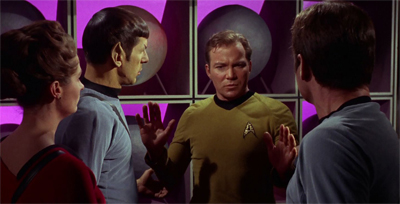
“Yes, I’m sure having our two most senior officers controlled by god-like aliens we just met is a good idea… why wouldn’t it be?”
It fulfills the plot-necessary function of explaining why Kirk would give over his body to a random alien – even if it would still seem safer to nominate two less senior officers – but it also very clearly articulates some ideas at the heart of the franchise. The script for Return to Tomorrow was heavily re-written by Gene Roddenberry, and it feels like something of a prelude for Roddenberry’s more evangelical approach to writing Star Trek from Star Trek: The Motion Picture onwards.
Much like By Any Other Name, Return to Tomorrow is predicated on the idea that humans are inherently and irreducibly special. As with By Any Other Name, a bunch aliens forced to take human form as part of a larger plan find themselves enamored with the pleasures of the human experience. “Lungs filled with air again,” Sargon!Kirk proclaims. “To see again. Heart pumping, arteries surging with blood again. A half a million years. To be again. Your captain has an excellent body, Doctor McCoy. I compliment you both on the condition in which you maintained it.”
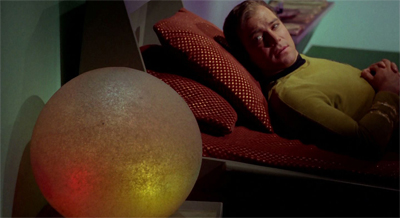
“One is a twenty-third century starship captain. The other is a god-like consciousness trapped inside a glowing ball. Together, they fight crime…”
Goodness, I’d love a Kirk/Sargon buddy comedy…
The episode is not credited to Roddenberry, but to John Kingsbridge. Kingsbridge was a pseudonym of writer John T. Dugan, who had been forced to fight Roddenberry for credit. The matter went to the Writers’ Guild of America for arbitration, and they decided in Dugan’s favour. (Alan Dean Foster had to fight Roddenberry for credit on The Motion Picture.) However, Dugan took exception to some of the creative decisions made during the re-writes, and asked that the finished episode by credited to “John Kingsbridge.”
However, the writing credit on Return to Tomorrow would become a matter of no small controversy. The credits for the episode would become confused and mixed up for the next few decades. James Blish’s prose adaptations of the Star Trek episodes would credit Dugan under his real name. The VHS cover of the Return to Tomorrow cassette credited Gene Roddenberry. Dugan took the matter up with Paramount, earning a settlement and corrections across all associated media.
Much like Roddenberry’s attempts to strong-arm Harlan Ellison, this is not one of the show’s prouder moments when it comes to dealing with writers. Dugan voiced his frustrations in an interview with Starlog:
“I mean, to be an original Star Trek writer is quite a thing. Then, to have your credit stolen by the god of Star Trek is a cheap shot. I put the tape in and saw that the credit is fine on the show itself, but what pissed me off was that it’s not correct on the jacket, for anyone casually looking at it.”
Roddenberry had heavily re-written episodes like Shore Leave without seeking to “jump” credit, but perhaps he felt Dugan was an easier target because he was not as established a science-fiction writer as Theodore Sturgeon.
The disagreement between Dugan and Roddenberry of the script concerned the final act. At the end of Return to Tomorrow, Sargon and Thalissa decide to drift off into “oblivion” together, abandoning the universe to mankind and other similar species. According to the aforementioned Starlog interview, Dugan objected on philosophical grounds to this ending:
“That line totally went against my philosophy and cosmology,” he says. “It was only one line, but I didn’t want to be associated with it. This oblivion idea is Roddenberry’s philosophy, not mine. My philosophy was that these entities would exist as spirits for eternity, but they wouldn’t have their bodies. That might be a small thing, but I have a reputation and a philosophy, and everybody who knows me knows what I stand for; I certainly don’t stand for oblivion in the afterlife, so I used my pseudonym. When you write a script, you don’t expect to have your world view changed by a producer. The rest of Roddenberry’s changes were all trivial, as I said in my letter to the arbiters; the big thing was that change in the episode’s philosophy. Other people might think I’m crazy, but that’s the way I live.”
However, as much as Dugan’s central cosmology and philosophy would reject the idea of Sargon and Thalissa fading away into nothingness, Roddenberry’s central cosmology and philosophy all but demanded it.
At its core, Return to Tomorrow is a story about how the universe does not need its gods any more. It is a tale about how mankind has moved beyond the need for an all-powerful father-figure to tell them what to do and what not to do. This is as much a story about Gene Roddenberry’s atheism as The Apple or most of Who Mourns for Adonais? (Which, of course, sets it at odds with the conclusion to Bread and Circuses.)
Sargon and his people are cast in a very religious light. It is no wonder that Henoch, the evil character, ends up in the most satanic body. Sargon confesses to Kirk, “One day our minds became so powerful, we dared think of ourselves as gods.” It seems that Sargon hasn’t ever moved past that. He refers to Kirk as “my son” and to humanity as “my children.” He describes space as “the heavens.” He speaks in a disembodied voice with absolute power.
Return to Tomorrow draws rather heavily from The Book of Genesis, with Sargon even doing some biblical name-dropping. He takes credit for creating life on Earth… maybe. “As you now leave your own seed on distant planets, so we left our seed behind us,” he boasts. “Perhaps your own legends of an Adam and an Eve were two of our travellers.” When Mulhall questions his suggestion, Spock suggests Sargon’s people may have “seeded” Vulcan. Sargon promptly changes the subject. “In either case, I do not know. It was so long ago.” It’s hard to keep track.
This isn’t the only parallel. The climax of the episode owes a debt to Abraham’s sacrifice of Isaac, when God directs the man to sacrifice his only son. However, it is revealed to be a test of faith at the last possible moment, with God sparing Isaac. At the end of Return to Tomorrow, Sargon asks Kirk to sacrifice Spock. Kirk does so willingly, only for Sargon to spare Spock at the last minute. “I could not allow your sacrifice of one so close to you.”
Return to Tomorrow makes several references to the theory of “ancient astronauts” – the idea that Earth was visited by pre-historic space explorers who either created or curated life on the planet. Sargon seems to suggest that his people created mankind specifically so that Kirk would find this planet all these years later. “We knew the seed that we had planted on other planets would take root, that one day you would build vessels as we did, and one day you would come here,” Sargon!Kirk boasts.
The Star Trek franchise is quite fond of the idea of ancient astronauts – the idea of aliens who have shepherded evolution across the cosmos, possibly including Earth. The Preservers fulfil a similar function in The Paradise Syndrome, while Who Mourns for Adonais?, Requiem for Methuselah and Plato’s Stepchildren hit on similar ideas. On The Next Generation, The Chase reveals that all the alien races on Star Trek look so alike because they were all seeded by the same race.
It is worth noting that Roddenberry himself firmly rejected the idea of ancient astronauts, interpreting the idea as an insult to humanity’s own power of self-determination and autonomy. Mankind was perfectly capable of building the pyramids on their own terms, without any assistance from extraterrestrials. It is a powerful statement of Roddenberry’s atheist humanism, and one that informs a lot of what of the writer saw in Star Trek.
So the franchise’s fixation on the concept is interesting, because it runs so contrary to Roddenberry’s worldview, and that of the entire franchise. Then again, Star Trek has never been entirely internally consistent, especially on matters of faith. However, there are a number of possible reasons why the franchise may have returned so frequently to this subject. Most obviously, because the concept of ancient astronauts allowed the franchise to engage with religion in an indirect way.
After all, religion is a pretty controversial subject. Actually questioning and exploring Christianity would have been impossible in the late sixties on American network television. However, as Ryan Britt has noted, creating aliens who satisfy many of the expectations of deities gets around a potentially thorny issue:
The idea that aliens could be our ancestors (instead of gods or supernatural deities) opens up new avenues of faith for skeptics with a science-based worldview. Instead of being made from mud, or springing from the head of Zeus, we can look up to the stars and say, “well, it probably was on one of those things, where everything else came from.”
It’s not wonder that the idea is as old and archetypal as it is, with Chariots of the Gods? tracing a rich line of speculative fiction dating back through Dawn of the Magicians to H.P. Lovecraft and beyond.
On the twelfth anniversary of Gene Roddenberry’s passing, James F. McGrath reflected on how Star Trek used these sorts of pulpy science-fiction ideas:
It is interesting that so many stories on Star Trek and other science fiction shows explore the scenario that advanced aliens are mistaken for gods and advanced technology for magic or miracle. It allows the exploration of longstanding traditions of storytelling to continue in the framework of our modern scientific worldview. But it also allows the gods to be challenged, rejected, taken on, beaten, and brought down to size. And so if, on one level, doing that posits that such beings as Apollo really exist, on another it allows human beings to outgrow them and treat them as beings like us, and not infallible sources of truth worthy of worship.
With all this in mind, Gene Roddenberry’s script for Return to Tomorrow could only have ended one way.
Sargon and Thalissa’s decision to retreat into “oblivion” implies that they are handing over the universe to their successors. It is a way of making explicit the ideas implied by the early first season and late second season episodes that portrayed the universe as a mostly-empty graveyard haunted by the ghosts of once-powerful civilisations. Humanity has inherited the universe; this is their opportunity to define themselves against it.
That said, it wouldn’t be a Gene Roddenberry script if there weren’t a few moments when Return to Tomorrow gets a little heavy-handed with its morals. Explaining how he and his people ended up in their protective bubbles, Sargon recalls “the cataclysm which [they] loosened upon [themselves]”, “a struggle for such goals and the unleashing of such power that you could not comprehend.” Kirk makes the immediate implied connection with the atomic age. “We faced a similar crisis in our early nuclear age. We found the wisdom not to destroy ourselves.”
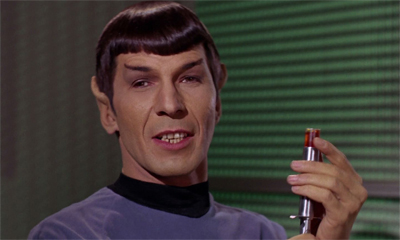
“… And that’s why, when I’m trying to maintain a mortal body, I use Doctor McCoy’s patented Homebrew Immortality Serum. Available from all good deep space outlets.”
To be fair to Roddenberry, Sargon does suggest that atomic horror is not the only potential calamity awaiting a rapidly-advancing society. “We survived our primitive nuclear era, my son,” Sargon tells Kirk. “But there comes to all races an ultimate crisis which you have yet to face.” That ultimate crisis is existential and philosophical in nature – much like Sargon’s threat to Kirk at the end of the teaser. Sargon’s society was destroyed by its own arrogance and hubris, having survived its atomic age.
It is a little weird to hear that line in the wake of Roddenberry’s writing on The Motion Picture and The Next Generation, where it frequently seemed like mankind had elevated themselves to the status of the divine – deciding when and when not to intervene, taking great pride in lording their superiority over those they deemed less advanced. It seems like episodes like The Last Outpost and Lonely Among Usfthe gam might have learned from Sargon’s wisdom.
There’s also some of the troubling background radiation sexism we’ve come to expect from Star Trek. To be fair, Mulhall is a much more developed and competent female guest star than usually appears – Diana Muldaur holds her own quite well against the rest of the ensemble, giving Mulhall some of the same bite that she would bring to Pulaski on The Next Generation. However, it’s telling that – much like Kelinda in By Any Other Name – Thalassa is the alien most skilfully and casually manipulated.
It is Thalassa who is corrupted (albeit briefly) by Henoch’s promise of immortality. Henoch and Sargon are defined as moral absolutes. Sargon is never tempted to abuse his power, while Henoch starts plotting to hang on to his new body almost the moment he wakes up. Thalassa, on the other hand, seems prone to change her mind depending on whom she spoke to last. Even when they decide to keep their bodies, Henoch schemes in the background until his plan is complete, while Thalassa lashes out at Doctor McCoy in a rather transparent and petulant manner.
Still, there is something quite pointed in Thalassa’s plea to keep Mulhall’s body. After all, the audience knows that Kirk has to be Kirk and Spock has to be Spock by the end of Return to Tomorrow. Mulhall is a guest star, and so she is disposable; she is even wearing a red uniform. Thalassa tries to bargain with McCoy. “It happens to belong to a young woman,” McCoy insists. Mulhall cuts across him, “Who you hardly know. Almost a stranger to you.”
There’s something quite pointed in that remark. It almost seems like Thalassa is drawing attention to how casual and callous Star Trek can be about lives outside those of the primary cast. Mulhall has never been seen before, she has never been seen again. How is she different from the dozens of Enterprise crew members who appear in episodes like this so that they may be killed off to provide cheap drama. Is Mulhall any more or less important than Yeoman Thompson, forgotten at the end of By Any Other Name?
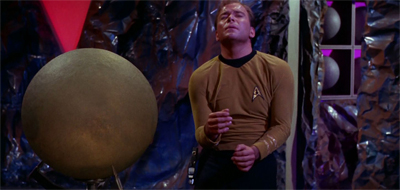
“Sargon, you will discover that mankind has pioneered many revolutionary dance moves since your last visit…”
Return to Tomorrow never answers that challenge. Mulhall never appears again, despite Muldaur’s performance and the appeal of a no-nonsense hyper-competent female staff member other than the still-nebulously-defined Uhura. However, the fact that the episode dares to raise the question is interesting. It might be too much to describe Return to Tomorrow as self-aware, but there are faint glimmers to be found buried in the messy script.
The production on Return to Tomorrow is quite impressive. The design of Sargon is very cost-effective, but it is also iconic. The idea of an entire civilisation preserved in simple white spheres is incredibly memorable – the design recalls the “head museum” in Futurama, and it seems unlikely to be a coincidence. Like the Gamesters from The Gamesters of Triskelion, Sargon is the kind of eccentric realised-on-a-tiny-budget alien that people think about when they think of Star Trek.
It’s also nice to have George Takei back, after his ten-episode absence from the middle of the season. Takei was filming The Green Berets, a production that ran significantly over-schedule. Takei regrets that unfortunate scheduling mismatch, because the second season had promised a larger role for Sulu:
During the first season I lobbied Gene Roddenberry and the directors and the writing staff to beef up the role — well, everybody was doing that, and when you have seven regulars it gets to be very difficult. Gene said, “This is the first season and we really have to strengthen the two leads.” But he promised me that in the second season he’d devote more attention to the other characters. He did keep his promise and develop wonderful roles for Sulu. But I got cast during the hiatus in The Green Berets, the John Wayne movie. We ran way over schedule and I couldn’t be back in time for the beginning of the second season. Walter Koenig was brought in to essentially say the words that were written for me. I had already memorized them because I was so excited.
Perhaps the most notable example of Chekov stepping into a Sulu-sized gap is The Trouble With Tribbles. Sulu doesn’t do anything particularly noteworthy or important over the course of Return to Tomorrow, but the show opens on a nice a close-up of George Takei to assure viewers that the character has returned.
Return to Tomorrow is also notable for allowing Leonard Nimoy a chance to step outside the role of Spock, if only for twenty minutes. Nimoy relishes the opportunity to play a more manipulative and scenery-chewing role than that of the half-Vulcan first officer, accepting that Henoch is never going to be a multi-faceted antagonist for the show. There is something strangely charming about seeing Nimoy grin and smirk and plot in his familiar Spock make-up.
By Any Other Name and Return to Tomorrow may not feature the best writing on the show, but they are packed with visuals and ideas deeply associated with Star Trek.
You might be interested in our other reviews from the second season of the classic Star Trek:
- Catspaw
- Metamorphosis
- Friday’s Child
- Who Mourns for Adonais?
- Amok Time
- Supplemental: Spock’s World by Diane Duane
- The Doomsday Machine
- Supplemental: New Visions #3 – Cry Vengeance
- Wolf in the Fold
- The Changeling
- The Apple
- Supplemental: (DC Comics, 1984) #43-45 – The Return of the Serpent!
- Supplemental: (IDW, 2009) #13 – The Red Shirt’s Tale
- Mirror, Mirror
- Supplemental: Deep Space Nine – Crossover
- Supplemental: New Visions #1 – The Mirror, Cracked
- Supplemental: (DC Comics, 1984) #9-16 – New Frontiers (The Mirror Universe Saga)
- Supplemental: Mirror Images
- Supplemental: Mirror Universe – The Sorrows of Empire by David Mack
- Supplemental: (IDW, 2009) #15-16 – Mirrored
- The Deadly Years
- I, Mudd
- Supplemental: (Gold Key) #61 – Operation Con Game
- Supplemental: (DC Comics, 1984) #39-40 – The Return of Mudd
- The Trouble With Tribbles
- Supplemental: The Galactic Whirlpool by David Gerrold
- Supplemental: Alien Spotlight – Tribbles
- Bread and Circuses
- Journey to Babel
- A Private Little War
- The Gamesters of Triskelion
- Obsession
- The Immunity Syndrome
- A Piece of the Action
- By Any Other Name
- Return to Tomorrow
- Patterns of Force
- The Ultimate Computer
- The Omega Glory
- Assignment: Earth
- Supplemental: Assignment: Eternity by Greg Cox
- Supplemental: (DC Comics, 1989) #49-50 – The Peacekeepers
- Supplemental: (IDW, 2008) Assignment: Earth
Filed under: The Original Series | Tagged: ancient astronauts, androids, chariots of the gods, credit, credit jumping, Diana Muldaur, Federation, gene roddenberry, James Doohan, john kingsbridge, john t. dugan, religion, return to tomorrow, risk is our business, sargon, sargon's people, star trek, star trek: the original series, the original series, themes, tos, writing |















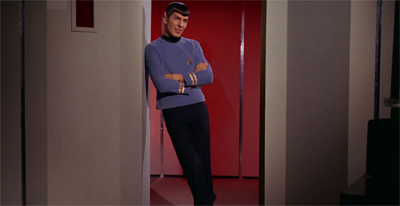


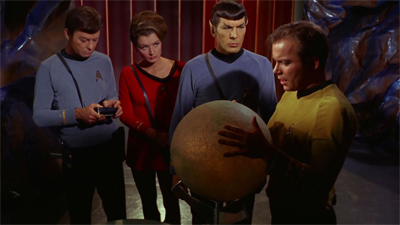
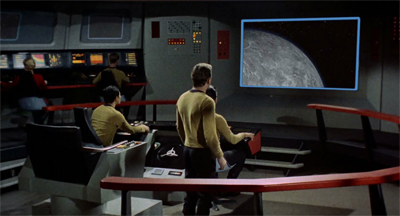
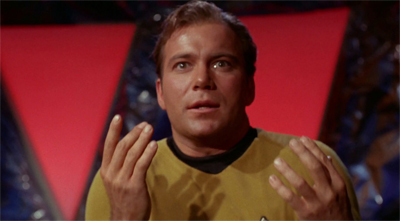
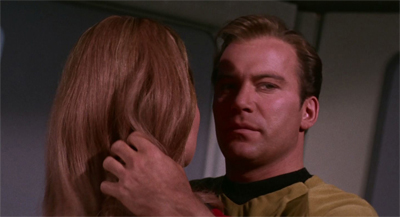
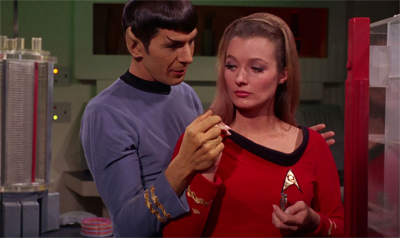
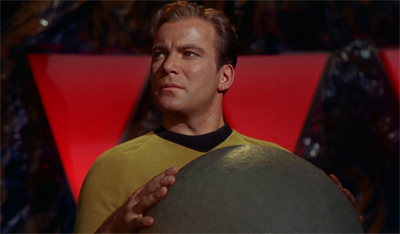
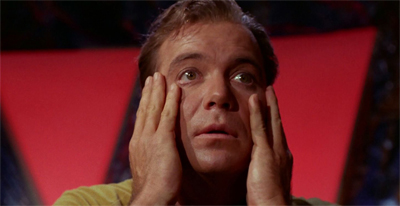
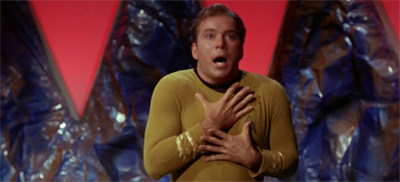
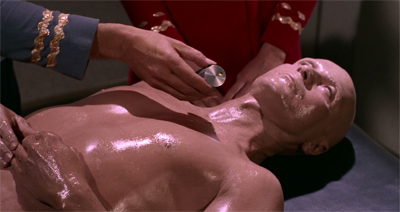

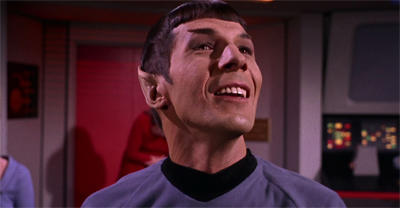
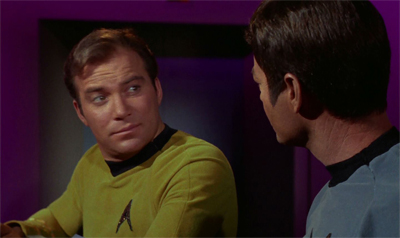
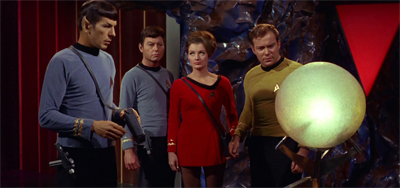


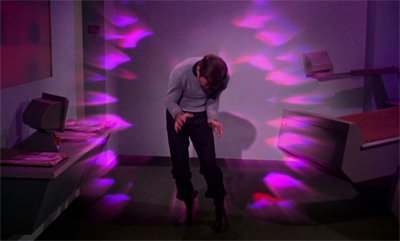

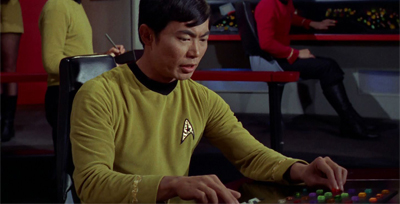
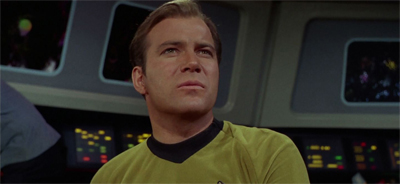





I love this blog. You go deeper into these Star Trek episodes than, perhaps, the writers and producers. It will take me months to digest all of your ideas.
I remember watching this episode immediately after deciding not to undergo hip replacement surgery. The heads of my femurs were made of dead bone and were crumbling.
I emphasized with Henoch and Thalassa. What is life if I can’t feel? Could I live a life of near-eternity inside of an unfeeling android body? I could at least think, couldn’t I? But what would it be like to think without feeling? What could anchor my thoughts?
So I lived with the pain for awhile, but it got worse, and I was unable to think at all because “feeling” became such a dominant sensation. I gave up and eventually did get my hip replacement surgery. I can still feel. I am still human.
Anyway…. thanks again for this blog.
Thanks for the kind words John.
And thank you for sharing your story. I have had several relatives go through joint replacement surgery, and while they described the process (and subsequent rehab) as incredibly tough, none of them regret the decision.